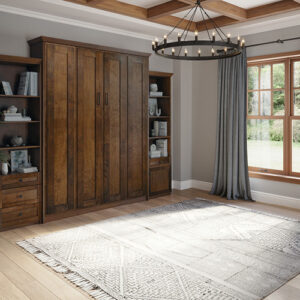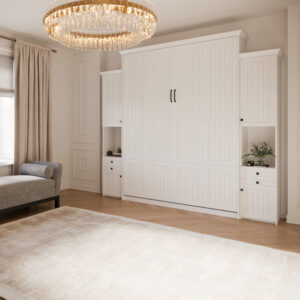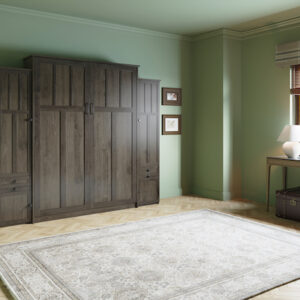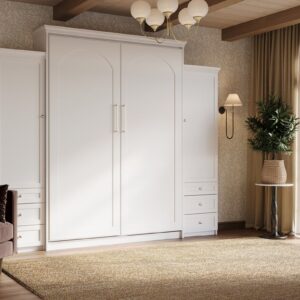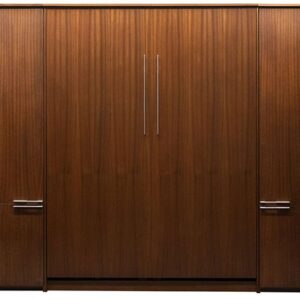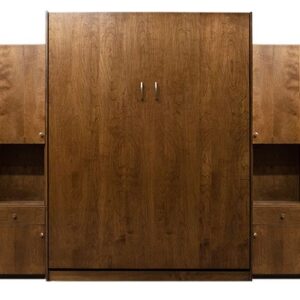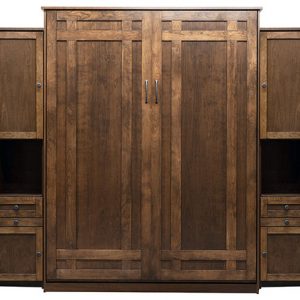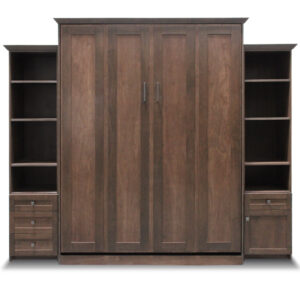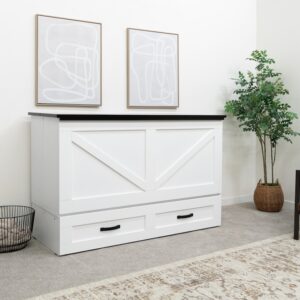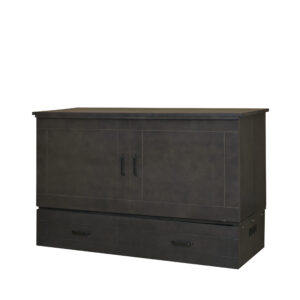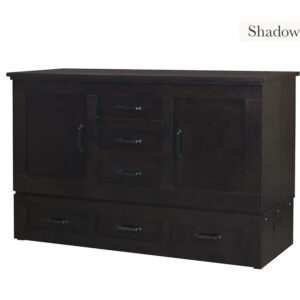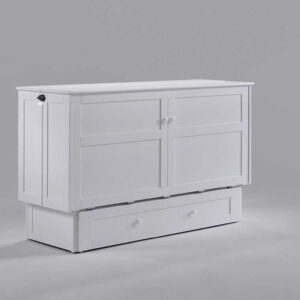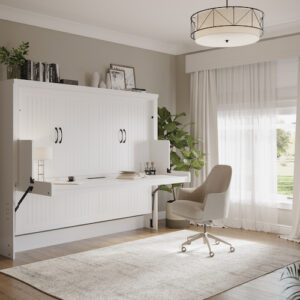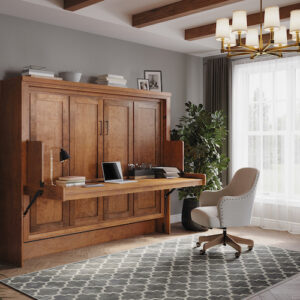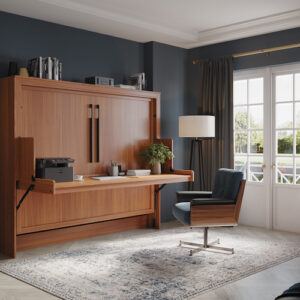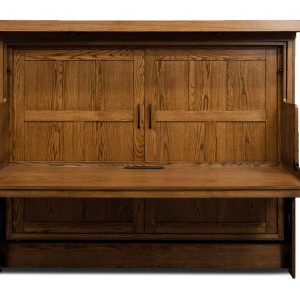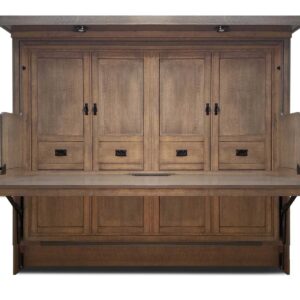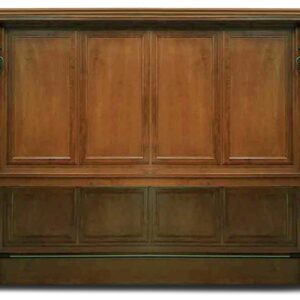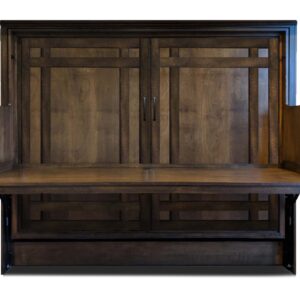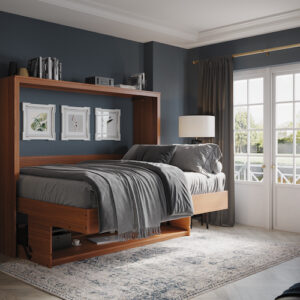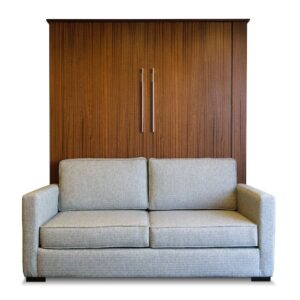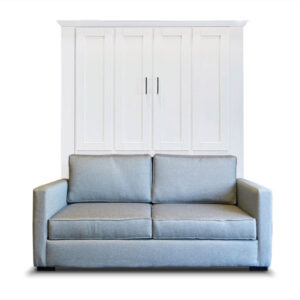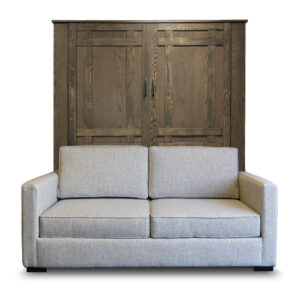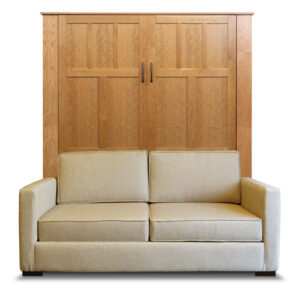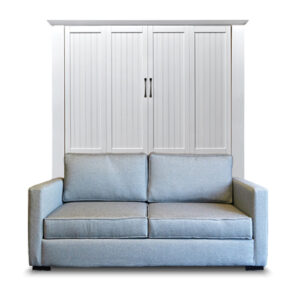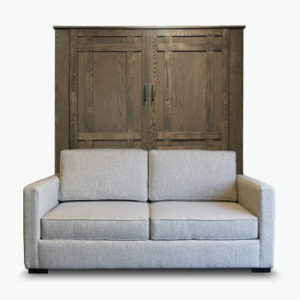The Importance of Eco Friendly Furniture

Our homes are such an incredible staple of our ever-changing lives. Homes have always afforded us shelter, but modern homes go so much further than just the four walls and roof of our forebearers. Wilding Wallbeds knows that our modern home is our sanctuary, office, shop and, maybe even a storefront. It provides us the comforts while offering us the utilities to function with the demands of modern life. In these modern homes, we strive to surround ourselves with the products and furnishings that not only promote our feeling of solidarity and comfort but primarily promote physical health and wellbeing. Lucky for us, we are part of a greater movement toward a cleaner and more sustainable future, that brings with it the hope of healthier and happier lives.

Health Comes First
It might seem counter-intuitive, but one of the main concerns of anyone purchasing furniture should be health and welfare. Our first consideration might be on the design or the color scheme, or even the price, but it should be, “Is this safe for me and my family?” We should be confident that the furniture we purchase to bring comfort to our homes, won’t be there to potentially harm us. Today we have a more rigorous vetting process when it comes to the products we use in furniture construction. In the not so distant past, many of the additives to the chemicals on our floors and furniture were potentially harmful. As late as 1978 there were still traces of lead in the varnishes used to coat wood flooring and furnishings; as well as asbestos for flame-resistant barriers and insulation.
Creating Safer Products
These products used were extremely durable and efficient and used in mass quantity. Unfortunately, they were as hazardous as they were effective. As science and technology pushed forward, new and safer products have risen to take the place of the old hazardous ones, but even now we are still finding that the materials we use to make our furniture might not be as safe as we would like. As our ideas for a healthy and eco-friendly future take shape, we are constantly testing our materials and designs for safer standards. These progressive standards have led us to an even larger crack-down than before, and as a result, we see a large reduction in the use of many currently used materials. Materials such as polybrominated diphenyl ethers (PBDEs), which is currently used as a flame retardant. PBDEs are not bound to plastics, foam or the fabrics in which they are used, which means they are more likely to break free and become airborne with the dust in our homes. Another example is Formaldehyde. Some Products still contain Formaldehyde, and although it is a known carcinogen, it is used in carpentry, soaps, detergents, cabinetry, and glues. The National Cancer Institute states that research links formaldehyde exposure to several cancers [1]. The health concerns of tomorrow are being created today, and as the manufacturers of today, Wilding Wallbeds is producing the products of tomorrow. The purchases of every consumer act as a vote toward what kind of products should be made. If consumers make health-conscious purchases consistently, the demand for health affective furniture will be the future of furniture.

The World of Sustainability
Aside from our personal health and the health of our loved ones. There is the health of the world as a whole to consider. The use and management of the world’s resources isn’t a new topic, but in 2015 the United Nations put forward a series of goals promoting sustainable development of the entire world. In this layout for the future, as you would expect, there are specific calls for the “Mobilization of significant resources from all sources and at all levels to finance sustainable forest management and provide adequate incentives to developing countries to advance such management, including for conservation and reforestation” [2]. The UN is essentially trying to incentivize the responsible use of the world’s natural resources. Consumers might not individually have the power or pull of an organization like the UN, but collectively they drive the current and future markets. Manufacturers and consumers alike participate in this supply and demand cycle. It’s in the hands of every individual as to the level that they will help promote or hinder the process. That being said there are ways to identify sustainable conscious companies. Look for certified sustainable products.

Construction Materials
Whether a piece of furniture is made from, cloth, metal, plastic, wood or whatever else, there are companies pushing for earth-friendly options. Although wood from sustainably harvested forests and farms is mostly the standard in the US. This is not the case worldwide. The United States imports more than $6 billion worth of household wood furniture (more than 60 percent of all household furniture is wood) [3]. So there is still the need for awareness and confirmation that the furniture we are buying supports sustainability. We are far off from a perfect solution and there are many ethical cracks to fill but here are some organizations to consult when looking at sustainable wood resources. The Program for the Endorsement of Forest Certification (PEFC) is the world’s leading forest certification organization. They are an international non-profit, non-governmental organization dedicated to promoting sustainable forest management. There is also the Forest Stewardship Council (FSC). The FCS is another great example of one certification that helps identify responsible harvesting and safe production. They work in accordance with local laws and with respect to indigenous peoples. You can also visit sites like APA.org and review their list of engineered wood manufacturers that carry the various certifications. Its programs and organizations like these that set the bar. They help certify that the products we are purchasing and the companies we are supporting are inline with our personal values.
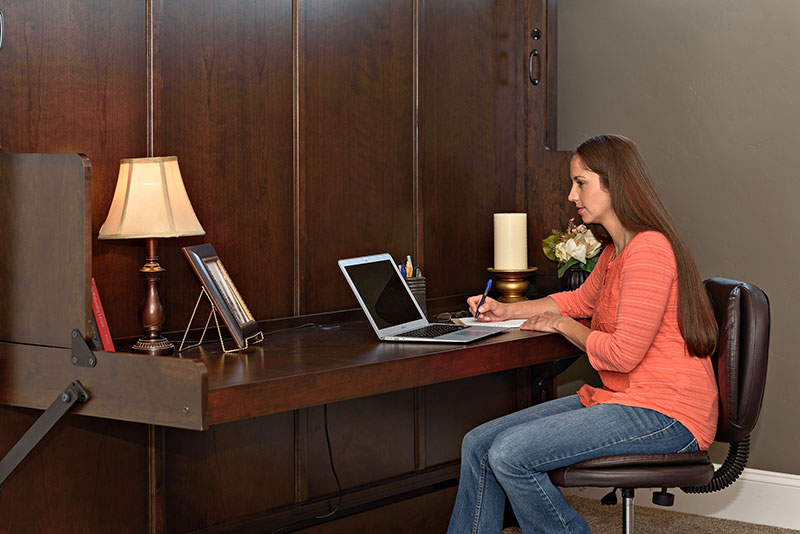
Space Saving Furniture
The world of furnishing is a massive space. There are more options available than information. Wilding Wallbeds is just one drop in a very large bucket, but with an eye toward the future and a mind for improvement, the furniture manufacturing for tomorrow might actually help there be a tomorrow. Our part in this is to make ourselves aware and purchase responsibly. It will greatly affect not only our lives but the lives of generations to come.
 Written by
Written by
Tyson Jones
Team Leader
Finishing Department
#EcoFriendlyFurniture, #WoodFinishing, #SustainableProducts
- “Formaldehyde and Cancer Risk”. National Cancer Institute. Retrieved 13 October 2016.
- “Open Working Group proposal for Sustainable Development Goals”. Sustainable Development. Retrieved 13 October 2016.
- “Wood Uses – Furniture”. WoodConsumption.org. Retrieved 13 October 2016.
